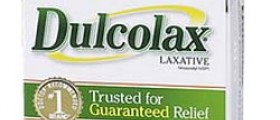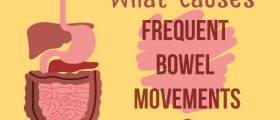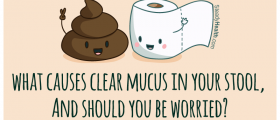
Facts About Constipation
Constipation is a very common health problem. Usually, the constipation means less than 3 stools per week, but the range of normal bowel movements includes 2-3 stools per day to 1 stool in 3 days.According to world statistics, almost every third adult suffers from constipation. The prevalence increases with age and women are more affected by this problem. It is a big medical problem, which is confirmed by the large number of doctor visits, which only in the U.S. was 2.5 million per year, while costs for laxatives were 800 million dollars.
In most cases, this condition has short duration and does not require special analysis and treatment. It is important to recognize the causes that lead to constipation because it will ease its treatment.
Constipation is manifested in difficult, irregular and incomplete bowel movements, accompanied with hard stool, bloating, gas, abdominal pain and sense of heaviness. Occasional constipation attacks are harmless, but the chronic constipation needs to be investigated to determine the primary disorder.
Causes of Constipation
The most common cause of the constipation is diet lacking in fiber and water. Excessive intake of alcohol or caffeine beverages also harden the stool and make its eviction difficult.Long periods of adynamia - absence of physical activity significantly slows the function of intestine, affecting irregular bowel discharge.
Certain disorders, such as hypothyroidism and depression as well as the use of certain medications (antidepressants, antacids, opiates, etc) can lead to constipation.
This condition is common after abdominal surgery as well as after childbirth and in patients with anal disorders (hemorrhoids) where the bowel movement causes pain.
Chronic constipation can be associated with disorders of the large intestine (colon diverticulosis, expanded and elongated colon), and therefore require review and consultation with a physician.
Long-term constipation causes remaining undigested food which is retained in the intestines. This leads to accumulation of toxic metabolic products in the body and the manifestation of their adverse effects.
Treatment
If the constipation is the result of an unhealthy way of life, there are several measures you can take to get rid of it and shorten its duration: consume food rich in fiber - bran, whole grain bread, cereals, fruit, dried fruit, leafy vegetables, potatoes, beans, and peas reduce intake of processed foods increase your daily intake of fluids, but avoid alcohol and caffeine drinks limit the use of laxatives, because colon can become lazy over time because of themdo not repress the need for a bowel movement. Disposal of emergency can cause constipation try to determine the time for daily bowel movements every day at the same time introduce physical activity into daily schedule for at least half an hour a day.
















Your thoughts on this
Loading...